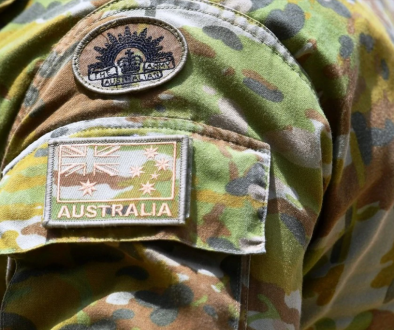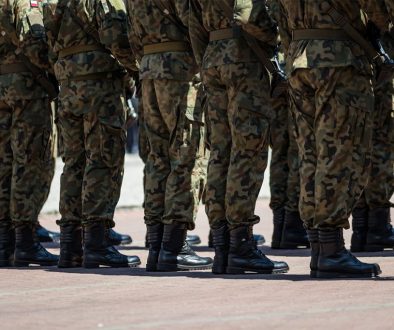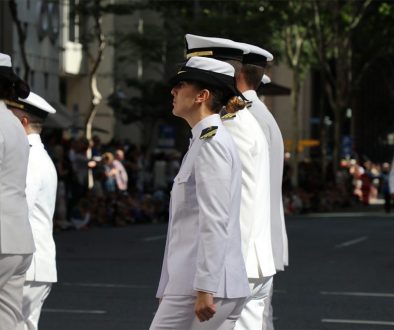
Anzac Day Reflections
27th April, 2021
On Anzac Day, we remember the Gallipoli Peninsula landing during the first World War in 1915. Today, Anzac Day serves to commemorate all Australians and New Zealanders who served and died in military conflicts and operations offshore – but when do we, as a nation, acknowledge each veteran that takes their life every two weeks?
After returning from the battlefield arm in arm, ex-servicemen and women cope with internal trauma alone in the form of abuse, combat trauma and suicide. The ADFs inability to implement proactive measures to combat these issues is deplorable, and for the last two decades, families have fought tooth and nail to attain the support they desperately need off the battlefield, but at what cost?
“More Australian veterans have lost their lives by suicide than have been killed on active duty since ADF personnel were first deployed to Afghanistan in 2001”.[1]
The attention of Army Personnel and Veterans mental health in the ADF has been of paramount concern at Class PR. They continue to support current servicemen and women in their process to receive a delayed “TSPV Security Clearance” – “top secret positive vetting”. Without TSPV clearance, servicemen and women are withheld from classified information critical to their role and rank progression. The unduly delays affect the mental health and wellbeing both on and off the battlefield of servicemen and women. As a result, their progression is stunned and contributes to the downward spiral of poor mental health that is rampant across ex-servicemen and women.
Anzac Day is an emotional day in our calendar as we remember those who have served and died protecting our country. So, what reflections can we take from Anzac Day 2021? At the eleventh hour, six days shy of the Last Post on Anzac Day, Prime Minister Scott Morrison announced a Royal Commission into Defense and Veteran Suicide. The announcement came after an unrelenting campaign launched by family members of ex-servicemen and women and lobbyists, namely Julie-Ann Finney, who lost her son, Former Navy officer David Finney.
Royal Commissions are independent of Government and operate as a public inquiry into an issue with a considerable amount of public importance and concerns. An important step when formulating a commission is a document called the Terms of Reference. The document suggests the scope of the inquiry and the key themes that are to be considered. The Royal Commission into Defense and Veteran Suicide will examine the issues set forth, including:
- contribution of pre-service, training, service, transition and post-service issues
- relevance of service, posting history and rank of the ADF member or veteran
- manner of recruitment into the ADF and subsequent transition
- availability, quality and effectiveness of health, wellbeing and support services.
Ultimately, the key takeaway from the Terms of Reference will indicate what our Government needs to do to respond and proactively avert the systemic neglect of Veteran and Army Personnel. The Government has opened up feedback to the issues above, as these themes directly inform the Terms of Reference. Class PR encourages those who have an opinion on the matter to contribute using the link here. Submissions close at 5 pm on Friday 21 May 2021.
Class PR will widely advertise the opportunity to make formal submissions when the Royal Commission is established.
[1] David Crowe, ‘Morrison open to royal commission into veteran suicides’, Sydney Morning Herald (online, March 22 2021) < https://www.smh.com.au/politics/federal/morrison-open-to-royal-commission-into-veteran-suicides-20210321-p57cme.html>.

Anzac Day Reflections
27th April, 2021
On Anzac Day, we remember the Gallipoli Peninsula landing during the first World War in 1915. Today, Anzac Day serves to commemorate all Australians and New Zealanders who served and died in military conflicts and operations offshore – but when do we, as a nation, acknowledge each veteran that takes their life every two weeks?
After returning from the battlefield arm in arm, ex-servicemen and women cope with internal trauma alone in the form of abuse, combat trauma and suicide. The ADFs inability to implement proactive measures to combat these issues is deplorable, and for the last two decades, families have fought tooth and nail to attain the support they desperately need off the battlefield, but at what cost?
“More Australian veterans have lost their lives by suicide than have been killed on active duty since ADF personnel were first deployed to Afghanistan in 2001”.[1]
The attention of Army Personnel and Veterans mental health in the ADF has been of paramount concern at Class PR. They continue to support current servicemen and women in their process to receive a delayed “TSPV Security Clearance” – “top secret positive vetting”. Without TSPV clearance, servicemen and women are withheld from classified information critical to their role and rank progression. The unduly delays affect the mental health and wellbeing both on and off the battlefield of servicemen and women. As a result, their progression is stunned and contributes to the downward spiral of poor mental health that is rampant across ex-servicemen and women.
Anzac Day is an emotional day in our calendar as we remember those who have served and died protecting our country. So, what reflections can we take from Anzac Day 2021? At the eleventh hour, six days shy of the Last Post on Anzac Day, Prime Minister Scott Morrison announced a Royal Commission into Defense and Veteran Suicide. The announcement came after an unrelenting campaign launched by family members of ex-servicemen and women and lobbyists, namely Julie-Ann Finney, who lost her son, Former Navy officer David Finney.
Royal Commissions are independent of Government and operate as a public inquiry into an issue with a considerable amount of public importance and concerns. An important step when formulating a commission is a document called the Terms of Reference. The document suggests the scope of the inquiry and the key themes that are to be considered. The Royal Commission into Defense and Veteran Suicide will examine the issues set forth, including:
- contribution of pre-service, training, service, transition and post-service issues
- relevance of service, posting history and rank of the ADF member or veteran
- manner of recruitment into the ADF and subsequent transition
- availability, quality and effectiveness of health, wellbeing and support services.
Ultimately, the key takeaway from the Terms of Reference will indicate what our Government needs to do to respond and proactively avert the systemic neglect of Veteran and Army Personnel. The Government has opened up feedback to the issues above, as these themes directly inform the Terms of Reference. Class PR encourages those who have an opinion on the matter to contribute using the link here. Submissions close at 5 pm on Friday 21 May 2021.
Class PR will widely advertise the opportunity to make formal submissions when the Royal Commission is established.
[1] David Crowe, ‘Morrison open to royal commission into veteran suicides’, Sydney Morning Herald (online, March 22 2021) < https://www.smh.com.au/politics/federal/morrison-open-to-royal-commission-into-veteran-suicides-20210321-p57cme.html>.



